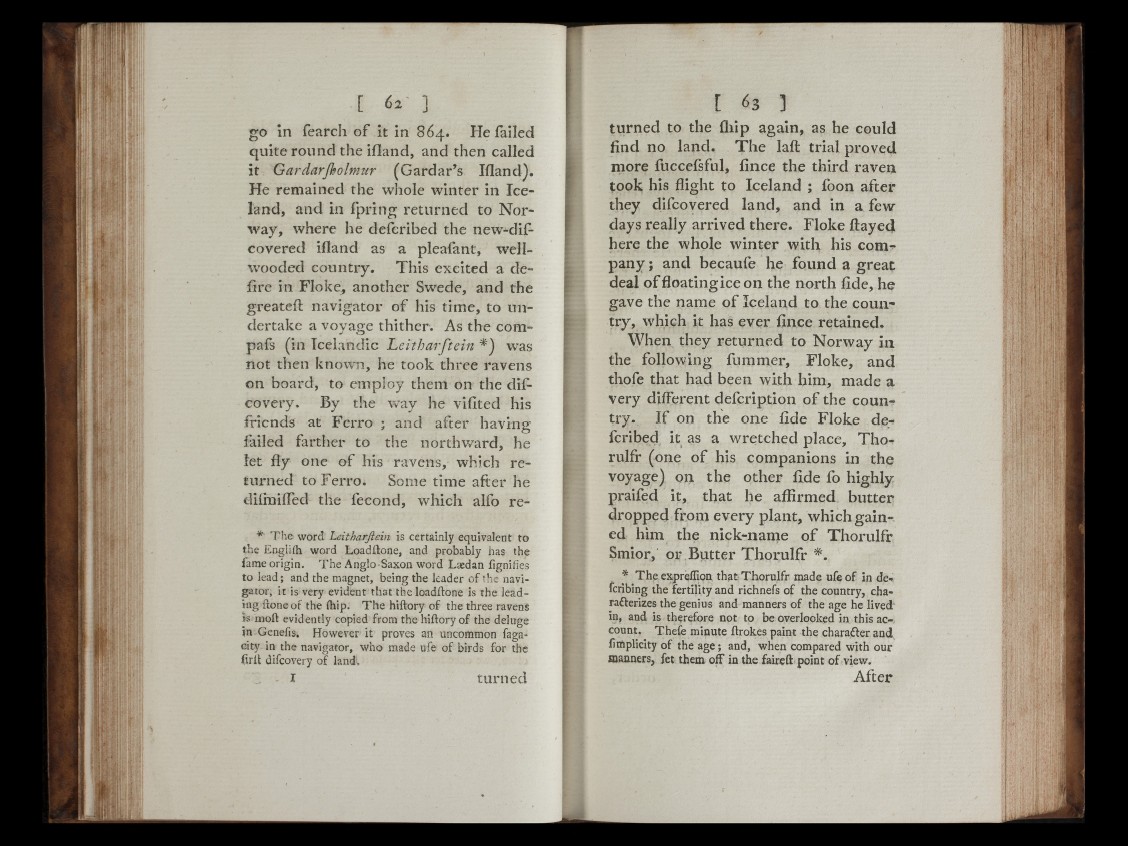
62
go în fearch o f it in 864. He failed
quite round the iiland, and then called
it Gardarjholmtcr (Gardar’s Ifland).
He remained the whole winter in Iceland,
and in fpring returned to Nor-
■way, where he defcribed the new-dift
covered ifland as a pleafant, well-
wooded country. This excited a de-
flre in Floke, another Swede, and the
greateil navigator o f his time, to undertake
a voyage thither. As the compafs
(in Icelandic Leitharftein *) was
not then known, he took three ravens
on board, to employ them on the dift
covery. By the vray he viiited his
friends at Ferro ; and after having
failed farther to the northward, he
let fly one o f his ravens, which returned
to Ferro. Some time after he
diiraiiTed the lecond, which alfo re-
* T lie word Leitharjiein is certainly equivalent to
the Engliih word Loadilone, and probably has the
fame origin. T h e Anglo-Saxon word Laedan fignifies
to lead; and the magnet, being the leader o f the navigator,
it is very evident that the loadilone is the leading
iloneof the fhip. T h e hiftory o f the three ravens
IS moft evidently copied from the hiftory o f the deluge
in Genefis. However it proves an uncommon faga-
city in the navigator, who made ufe o f birds for the
ftrft difcovery of land,
I turned
[ 63 ]
turned to the fliip again, as he could
find no land. The lail trial proved
more fuccefsful, iince the third raven
took his flight to Iceland ; foon after
they difcovered land, and in a few
days really arrived there. Floke flayed
here the whole winter with his com*-
p an y ; and becaufe he found a great
deal o f floatingice on the north fide, he
gave the name o f Iceland to the country,
which it has ever fince retained.
When they returned to Norway in
the following fummer, Floke, and
thofe that had been with him, made a
very different defcription o f the country.
I f on the one fide Floke defcribed
it as a wretched place, Tho-
rulfr (one o f his companions in the
voyage) on the other fide fo highly
praifed it, that he affirmed butter
dropped from every plant, which gained
him the nick-name o f Thorulfr
Smior, or Butter Thorulfr *.
* T h e expreilipn that Thorulfr made ufe o f in de-*
fcrlbing the fertility and richnefs o f the country, cha-
railerizes the genius and manners o f the age he lived
in, and is therefore not to be overlooked in this account.
^ Thefe minute ftrokes paint the charafter and
iirtpliclty o f the age; and, when compared with our
manners, fet them o ff in the faircft point o f view.
After
if